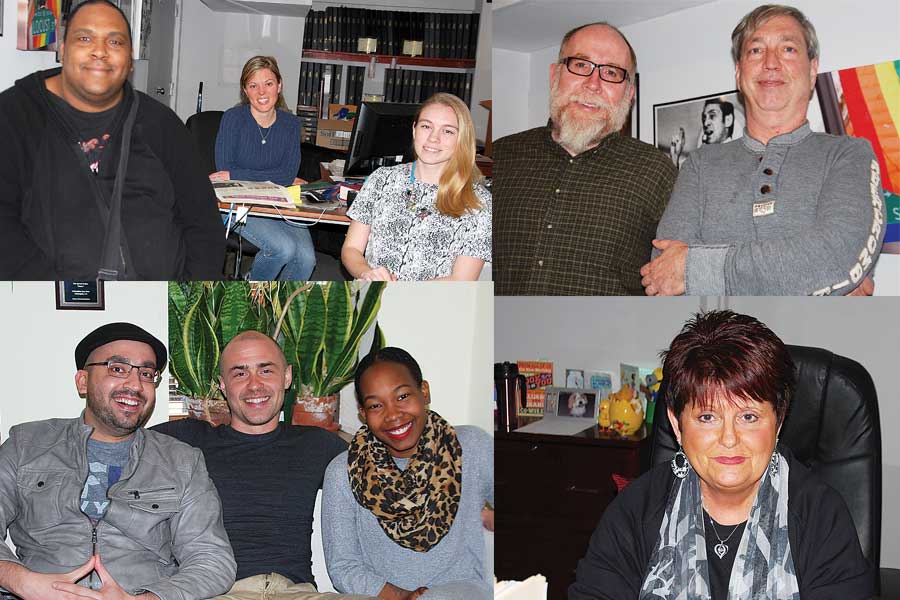Armed with nothing but her notebook, pen and minimal background information, PGN staff writer Paige Cooperstein got to work last month to get the full story on the fatal stabbing of Maya Young, a local transgender woman of color.
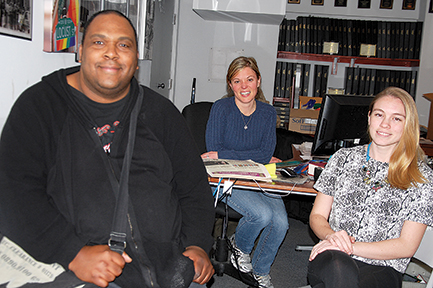
She called two directors of two different LGBT organizations with no immediate answers from either. For her third phone call, she contacted the police but they said they were gathering more information and would email at a later time. Finally, the fourth phone call ended up being the charm.
Cooperstein spoke with Naiymah Sanchez, coordinator of the Trans-Health Information Project at GALAEI: A Queer Latin@ Social Justice Organization. Cooperstein listened to Sanchez and wrote notes, occasionally pausing to ask a question or to circle sections of what she wrote. She ended up writing 14 pages of notes from the conversation.
“It’s really just half-words,” Cooperstein said with a chuckle about her shorthand process. “I’ll know what most of these [notes] mean and if I really want to use it, then I’ll circle it. If I do that, then I’ve been particularly accurate on [my note-taking] because I know I wanted to use it as a quote.”
When the phone call ended, Cooperstein began working on her short story to put on PGN’s website. Throughout the rest of the week, she updated the story for the publication’s print edition with information from the sources who got back to her, as well as incorporated personal stories from Young’s friends.
Telling stories like this — as well as more positive pieces — which present interest to an LGBT audience is what PGN has been doing for 40 years.
Cooperstein has been working with the publication since August and her desk has more than a dozen notebooks filled with notes from past stories to prove it. During her short time on staff, Cooperstein came to recognize how PGN is different from other LGBT publications. She noted how she sometimes has to explain PGN’s mission to interview sources with opposing views on LGBT issues. For example, the Mummers Parade on New Year’s Day featured a skit about Caitlyn Jenner that many viewers thought was transphobic. Rather than writing a story condemning those who organized the skit, Cooperstein contacted them directly.
“People seem to be very receptive if you let them know you’re writing this as a journalist and you need to have space for both [sides],” Cooperstein said.
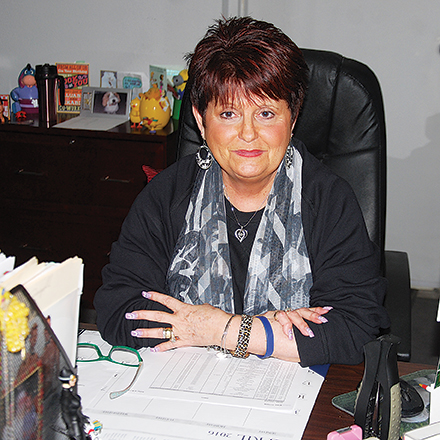
PGN editor Jen Colletta echoed Cooperstein, referencing PGN’s tagline: “honesty, integrity, professionalism.” She said the team holds itself to this mission with the quality of the work they put out.
“We’re a newspaper first before we’re a community newspaper,” Colletta said. “We’ve had to report on people in the LGBT community who’ve done ‘wrong things’ and that has angered some people but we’re a newspaper before anything else.”
As the brainchild of publisher Mark Segal in 1976, PGN has served as a platform for the LGBT community and its allies to communicate with each other on various issues. The publication has a record of being a pioneer.
Segal recalled PGN being the first LGBT publication to interview presidential candidates — in this case, it was Ted Kennedy and Jimmy Carter — as well as being the first newspaper to run stories about lesbian nuns and the possibility of Abraham Lincoln being gay.
Since the paper’s inception, it expanded to online and social media outlets to reach a broader audience. PGN also went on to publish special editions throughout the years with themes relating to youth, weddings, pets and senior citizens.
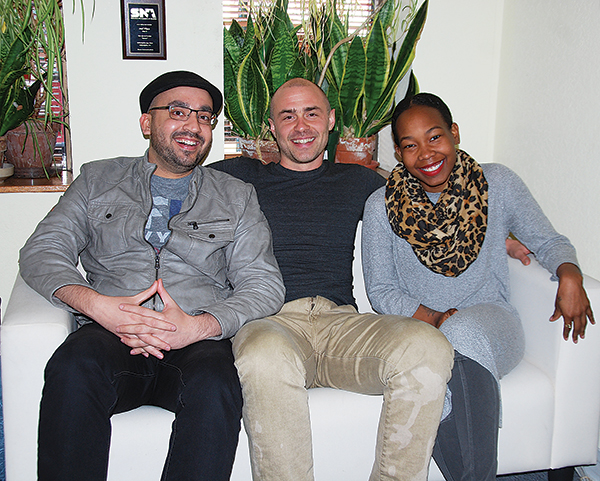
Additionally, PGN publishes editorials, columns and letters to the editor. While these particular pieces might have pro-LGBT stances, Segal still encourages others to “take issue with” PGN’s views.
“We love printing letters to the editor and op-ed pieces that disagree with our editorial position because that helps create respectful dialogue in our community,” Segal said. “As long as you’re not bashing somebody, we’ll publish it.”
While the work week for PGN may be filled with writing, editing, tracking breaking news, publishing stories on the website and updating social-media pages, the job is much more than “work” for many of the employees.
Colletta said that, while she identifies as a member of the LGBT community, she felt “cut off” from the community as a resident of Northeast Philadelphia. That changed when she began working as a staff writer in 2007 and later became editor in 2012.
“I got to quickly immerse myself in the community and meet so many people. I think that’s been the neatest thing for me — getting to see how diverse the community is and the inner workings of the community organizations,” Colletta said.
Other staff members had the chance to experience historic moments while working for PGN. Throughout the publication’s 40 years, Don Pignolet has worked as its office manager. One of his many duties includes the circulation of the papers through the news boxes on city streets. Pignolet recalls these boxes being vandalized with slogans such as “GAY=Got AIDS Yet” and other homophobic slurs. He even found homemade bombs in a few of them.
Nowadays, Pignolet continues to find the occasional graffiti but noted the growing acceptance of the LGBT community as the biggest change during his 40 years on staff.
“I never thought I would see gay marriage,” Pignolet said. “I thought there was a better chance of me walking on Mars.”
Pignolet is now married to his husband, whom he met three months before he started working for PGN 40 years ago. They married on Christmas Day 2013.
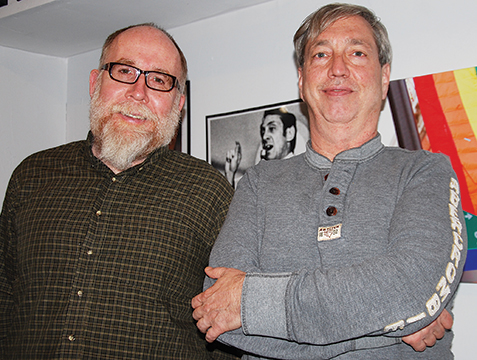
Scott Drake, the art director and photographer for PGN, also had the opportunity to experience marriage equality in a slightly different way. He planned a trip to Washington, D.C., to accept a Society of Professional Journalists award for one of his photos on June 26, 2015 — the same day the U.S. Supreme Court granted marriage equality to the remaining states that had yet to sanction it. This coincidence gave Drake not only the chance to document the day but also the opportunity to experience this moment in history firsthand.
“To be right there when it happened is a moment that I’ll never forget,” Drake recalled with a smile. “There are certain things that you remember in your life, like where you were when The Challenger exploded. But this is probably the one positive event I can think of. When this decision came down, I know exactly where I was: I was there.”
However, while many changes have occurred throughout its 40-year history, Segal said PGN is still the same publication he started 40 years ago.
“I don’t think it has [changed],” Segal said. “We started with a mission to become a news publication, and local news was our trademark from day one. We also decided we were going to do hard-news stories that nobody else did. And that’s the secret of our success.”
